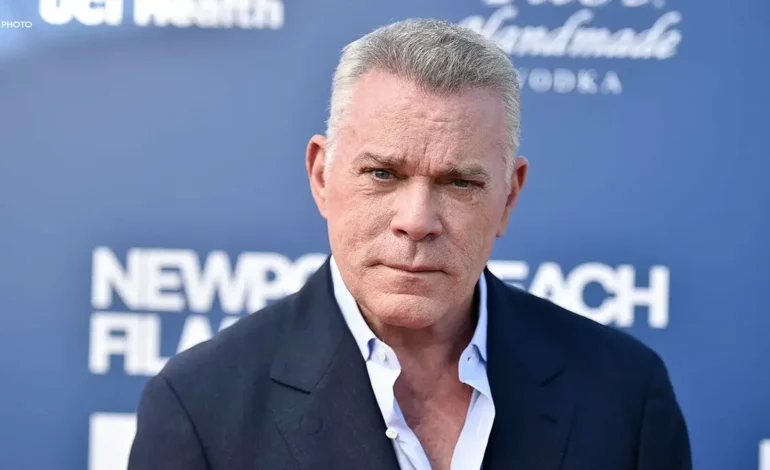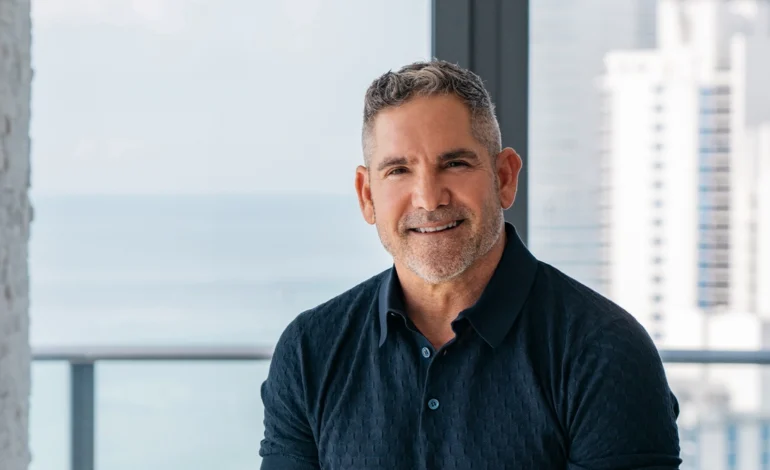Ray Liotta’s Wealth The Story Behind His Successful Career

Rugged voice. Steel-eyed presence. And the kind of charisma that doesn’t flinch. Ray Liotta wasn’t just a guy who showed up in movies—he was the movie.
You’ve seen him as Henry Hill in Goodfellas, or maybe heard him as Tommy Vercetti if you spent your weekends glued to Grand Theft Auto: Vice City. But here’s what most fans don’t know: Ray’s journey wasn’t just built on talent—it was built on smart moves.
When he passed away in May 2022, Liotta had built a net worth of approximately $14 million. Not mind-blowing by Hollywood blockbuster standards, but very few actors worked across as many formats—and still managed to keep their finances tight.
This legacy? It didn’t come by accident. From real estate flips to voice acting and big-screen legends, Ray’s financial game tells a deeper story than just bank balances. Let’s unpack how he made that happen.
Ray Liotta’s Career Milestones And Net Worth Evolution
Ray Liotta’s early story sounds like something straight out of a screenplay. Born in Newark, New Jersey, and adopted at just six months old, he never set out to chase the fame train. But after earning a fine arts degree from the University of Miami, the acting bug bit—and bit hard.
His breakout moment came with Something Wild in 1986. That’s when critics started to take notice. He wasn’t the hero. He wasn’t even supposed to be liked. But man, did he own the screen.
Then came the floodgate.
- Goodfellas (1990): The kind of role that cements your face in Hollywood history. Playing Henry Hill in Scorsese’s mob masterpiece didn’t just earn him accolades—it catapulted him into elite status. The film pulled in nearly $50 million at the box office, proving that critical acclaim and commercial performance could live in the same room.
- Field of Dreams (1989): A softer side. This was Liotta adding depth to his résumé—showing he wasn’t just gangster grit. Audiences responded, and so did directors. He quickly became a go-to name for complex, layered characters.
- Other standouts: From psychological thrillers like Unlawful Entry to ensemble hits like Cop Land, Ray built a resume over decades rather than moments. That longevity put steady cash in the bank.
But he didn’t stop at film.
Television gave Liotta a strategic boost with ROI that many actors overlook. His guest stint on ER in 2005 didn’t just earn him a Primetime Emmy—it reminded directors that he could still deliver A-level performances even in short bursts. It expanded his appeal into serialized formats and streaming-era projects where depth mattered as much as star power.
Behind the microphone, he became the iconic voice of Tommy Vercetti in Grand Theft Auto: Vice City. The game sold over 17.5 million copies, becoming one of the best-selling titles of its time. You’d assume the payday was equally legendary. Truth is? Ray later said he was underpaid for the project—a reminder that even in mega-successes, actor compensation doesn’t always follow suit.
Still, that role opened up a whole new income stream for him: voice acting. And it padded his career earnings, especially as games, animation, and commercials became more lucrative.
Breakdown Of Ray Liotta’s Acting Career Earnings
Look—Hollywood’s not always transparent about what actors pocket per movie, but projections and industry insights give us a solid window into Ray’s income arc.
Here’s a high-level breakdown of where Ray’s money likely came from:
| Income Source | Estimated Contribution to Net Worth |
|---|---|
| Feature Films | $8M–$10M |
| Television Appearances | $1.5M–$2M |
| Voice Acting & Video Games | $500K–$750K |
| Endorsements | $300K+ |
| Real Estate Investments | $2M+ in profit |
As for his peak salary years? They likely aligned with the ’90s through early 2000s, while his dramatic resurgence in later roles helped him maintain steady income even as leading man gigs slowed.
The Chantix ad campaign alone reportedly netted him $50,000—all for a few days in front of the camera, targeting a demographic far beyond your usual moviegoers. Toss in deals with brands like KFC, Apple, and Tequila Silver, and you’ve got endorsement checks rolling in even when he wasn’t on set.
Box office matters too. Goodfellas, for instance, didn’t just raise his celebrity stock—it gave producers confidence in casting Liotta. That trust translated into bigger paychecks, especially when he brought that same intensity to projects that needed a knockout performance from a tougher-than-nails character.
Ray Liotta’s net worth wasn’t built on one film or deal. It was the compounding effect of decades spent adapting, negotiating, and showing up with the same hunger that put him in the game back in the ’80s.
And that’s the kicker.
This guy knew how to hustle in the creative chaos of Hollywood while keeping his bank account moving in the right direction.
Ray Liotta’s Biography Financial Insights and Wealth Accumulation
When we think about Ray Liotta, many picture the ice-cool, sharp-suited mobster in Goodfellas. But behind the scenes, his financial journey tells a different story—one of deliberate choices, smart income diversification, and staying power in a cutthroat industry. For fans trying to understand Ray Liotta’s net worth, it’s worth asking: how do you build a multi-million-dollar fortune in Hollywood without chasing every role that comes your way?
Liotta wasn’t one to flood the screen with roles. Over more than four decades, he recorded 126 acting credits—a solid tally, but not oversized by Hollywood standards. That’s because he picked his parts with care. Whether it was cult-favorite films, high-stakes thrillers, or prestigious dramas, Liotta prioritized impact over volume. His breakout performance as Henry Hill in Martin Scorsese’s Goodfellas not only cemented his legacy but also boosted his negotiating power in later deals.
The actor knew how to expand his horizons. He didn’t stay locked in Hollywood’s traditional lanes. Liotta voiced protagonist Tommy Vercetti in the wildly successful video game Grand Theft Auto: Vice City—a cultural milestone that sold over 17 million copies. Even though he was reportedly underpaid for his contribution, the visibility he gained among a younger generation helped secure future commercial work. He went on to appear in TV dramas like Shades of Blue and lend his gravitas to ad campaigns for brands like Chantix and KFC.
Behind his varied professional front was a steady hand managing his earnings. Liotta leaned into relationships with talented filmmakers—Martin Scorsese, James Mangold, and others. These collaborations often came with not just prestige, but reliable income. By picking roles that invited critical acclaim, Liotta ensured he remained in demand, pulling consistent checks long after many of his peers had faded.
Staying relevant in Hollywood isn’t easy. Liotta knew this. After a high point in the ’90s, his career navigated quieter spells. Still, he resurfaced in major ways. His Emmy win in 2005 for ER showed that even television came calling. When NBC’s Shades of Blue launched, pairing him with Jennifer Lopez, it sparked a late-career surge—not just creatively but financially. More visibility meant higher pay and better offers.
In the end, Liotta’s wealth wasn’t built on luck. It was the result of choices: choosing artistic credibility, diversifying income, and staying smart about who he worked with. If there’s a playbook for balancing Hollywood glory with financial sensibility, Ray Liotta quietly wrote a few of its chapters.
Ray Liotta’s Investment Portfolio and Lifestyle
How do you enjoy the trappings of stardom without burning through your fortune? That’s the puzzle many celebrities never solve. But Liotta seemed to walk that tightrope well. His taste for nice things was obvious—but he kept one eye on the long game.
Let’s talk real estate. Liotta didn’t just snatch up luxury homes for fun—he moved strategically. One prime example? In 2003, he bought a 6,000-square-foot mansion in LA’s Pacific Palisades for $2.7 million. Just four years later, he flipped the same property to Britney Spears for a cool $7 million. That’s more than doubling your investment in under half a decade.
That wasn’t his only notable property. He held onto another home in Pacific Palisades—same neighborhood, different vibe—which was ultimately sold by his estate in 2023 for nearly $5 million. Whether this second property was more for personal use or another strategic investment, it pointed to his comfort playing the real estate game.
But it wasn’t all about flipping houses. Liotta liked living like a star. He drove luxury cars and lived in homes that reflected decades of Hollywood success. Still, there was never tabloid drama over excessive spending, spiraling debts, or bankruptcies—the kind of headlines that plague other stars. That alone speaks volumes about how he handled his money.
Maybe one of the less flashy but more admirable parts of Liotta’s financial personality was his clear tendency toward measured decisions. He didn’t chase every hot investment trend or throw cash at vanity projects. Instead, he stuck with:
- Stable real estate purchases in high-value neighborhoods
- Commercial endorsements that aligned with his public persona
- A diversified career that ensured earnings across film, TV, ads, and even gaming
That kind of steady, no-nonsense approach to wealth is rare. He may not have had yachts docked off French coasts, but there’s something refreshing about a star who built a recognizable, comfortable lifestyle without losing control of the bottom line.
Liotta’s spending never outshined his earnings. And in Hollywood, that’s more than just good PR—it’s good sense.
Ray Liotta’s Legacy as a Hollywood Financial Success Story
What sets Ray Liotta apart from a sea of talented actors who come and go? It’s not just the roles—it’s how he parlayed those four decades in the spotlight into lasting financial security.
Consider that when Liotta started gaining traction in the 1980s, Hollywood wasn’t the billion-dollar industry it is today. Studios had smaller budgets, and digital platforms hadn’t yet transformed actor pay scales. Yet, through each phase of the industry’s evolution, Liotta kept climbing. From mid-tier film budgets in the ’90s to streaming-era paydays, he moved with the times. By staying adaptable, he ensured his income grew alongside the industry.
The truth about actor pay in Hollywood is that it’s wildly inconsistent. A hit can catapult an actor; a flop can bury them. This is why diversification mattered. By working in different formats—from prestige cinema to network dramas—Liotta buffered himself against financial slumps. He treated acting as a long game, which put him ahead of many peers who relied on quick hits and tabloid moments.
Importantly, the diversity of roles strengthened his brand. He didn’t get typecast as one thing. Sure, he often played intense or morally complex characters, but audiences saw him as more than “just the mob guy.” Roles in Field of Dreams, Unlawful Entry, and Cop Land layered his filmography with emotional depth and range.
The idea that his work lives on isn’t just sentimental—it has financial weight. Films like Goodfellas still stream across platforms, and his digital voice work in Vice City continues to attract nostalgic gamers. This enduring relevance maintains royalty revenues and licensing opportunities. Even in death, Liotta’s name adds value to projects.
His ability to keep fans engaged across decades—and across formats—powers a legacy that’s both artistic and economic. New generations discover his work every year. The late-career revival with projects like Shades of Blue showed he could still anchor a narrative and deliver on-screen weight no matter his age.
Ray Liotta’s net worth, estimated at around $14 million by the time of his passing, isn’t just a number—it’s a reflection of how he navigated one of the most unpredictable careers out there. He didn’t play it safe, but he played it smart. A career built on character, not chaos. And in a space as chaotic as Hollywood, that’s a success story worth remembering.
Net Worth Analysis and Posthumous Financial Legacy
When Ray Liotta passed away in May 2022, he left behind a financial legacy worth around $14 million. Not blockbuster rich, but definitely solid. That number didn’t come out of the blue. It was built off the back of a four-decade acting career, punctuated by unforgettable roles, brand endorsements, and real estate power moves.
Everyone remembers him as Henry Hill in Goodfellas. That role exploded his career. But what most don’t know is that he voiced Tommy Vercetti in Grand Theft Auto: Vice City—one of the bestselling games of its time. That game sold over 17.5 million units. His paycheck for it? Nowhere near what it should’ve been. He later admitted he felt shortchanged. Classic case of a project blowing up, but the talent didn’t cash in the way they could’ve.
Outside of the screen, Liotta had an eye for deals. He bought a 6,000-square-foot mansion in Pacific Palisades for $2.7 million in 2003 and flipped it to Britney Spears four years later for $7 million. That’s not just a win—that’s a masterstroke. He repeated this by selling another Palisades home for nearly $5 million in 2023.
That said, there was still a lot of money left on the table. Liotta stayed active till the end, with new projects in film and TV lined up. His sudden death cut off what might’ve been a powerful second wind of big roles and perhaps more lucrative voice acting or endorsements. He still had fuel in the tank.
As for who inherited it all? Details are scarce. There’s no confirmed breakdown of his beneficiaries. He left behind a daughter, Karsen Liotta, and was engaged at the time of his death. Based on typical estate handling, it’s likely his family was prioritized. But without public probate filings, it’s all speculative.
When celebrities pass with estates like this, there’s a mixed bag. You’ve got lawyers, managers, sometimes even estranged relatives. The handling depends on how their trusts or wills were set up. In Liotta’s case, given how put-together his financial moves were while alive, chances are it was structured properly.
Comparing Liotta’s Wealth to Other Hollywood Celebrities
Let’s put $14 million into context. In Hollywood, that’s wealth—but not “yacht in Monaco” wealth. Compared to some of his Hollywood contemporaries, Ray Liotta’s net worth sits on the modest end.
Take Robert De Niro. Estimated at $500 million. Joe Pesci? Somewhere around $50 million. These guys had longer or more high-profile runs, often picking up producer credits or recurring franchise roles. Liotta, in contrast, worked hard and consistent—but often flew under the radar.
He never hit the superhero circuit. And while De Niro and Pesci repeatedly collaborated with Scorsese on big-ticket projects, Liotta’s range took him through gritty dramas, mid-budget thrillers, and TV appearances that paid steady but never huge.
Here’s the interesting twist: Liotta didn’t need paparazzi headlines or viral press to stay paid. He worked. And more importantly, he diversified. Real estate. Endorsement deals like Chantix. Voice acting gigs. These were intentional choices, ones that gave him freedom most actors scramble for.
Still, Hollywood isn’t a steady paycheck factory. Even for recognizable names, financial security isn’t guaranteed. Projects fall apart. Roles dry up. Public interest shifts. Liotta was no stranger to that grind, having admitted to leaner stretches in his career.
And yet, he kept cash flowing. That kind of financial stability takes more than just acting talent—it takes awareness and a willingness to pivot when the industry doesn’t play nice. His consistent work ethic meant that while he didn’t reach megastar financial heights, he never hit the lows many others face either.
Lessons from Ray Liotta’s Financial Journey
Here’s what Liotta’s journey teaches us. Whether you’re an actor, creative, or entrepreneur, there’s gold in mastery and consistency—not just fame.
Ray wasn’t chasing stardom the way some do. He was chasing the work. And the strategy behind that work was what built his million-dollar legacy. Aspiring actors take note: this isn’t about hitting the jackpot with a franchise. It’s about leveraging every role, every endorsement, and making every paycheck count.
Here’s what worked in his favor:
- Diversified income: Film, TV, voiceovers, endorsements, real estate.
- Steady output: 126 acting credits isn’t luck—it’s grind.
- Smart real estate deals that brought in multi-million-dollar flips.
- Embracing new mediums—like video games—before others caught on.
And it’s not just about the numbers. It’s about adaptability. He moved from theaters to sound booths to commercials, never letting himself be boxed into one Hollywood stereotype.
He didn’t wait around for Hollywood to rediscover him. He showed up. He bet on himself, even if that meant working smaller gigs, or showing face in unusual places. That kind of humility mixed with hustle? It builds lasting careers—even if the spotlight dims.
Ray Liotta stands as proof that the flashy headlines don’t always equal financial freedom. Quietly, methodically, he built a foundation strong enough to outlast him. And he did it with:
– A strong eye on opportunity.
– A refusal to coast on one big role.
– A crystal-clear understanding of the business side of acting.
That’s why his story still matters.
And that’s why his name stays in conversations—on screen and in finance.





